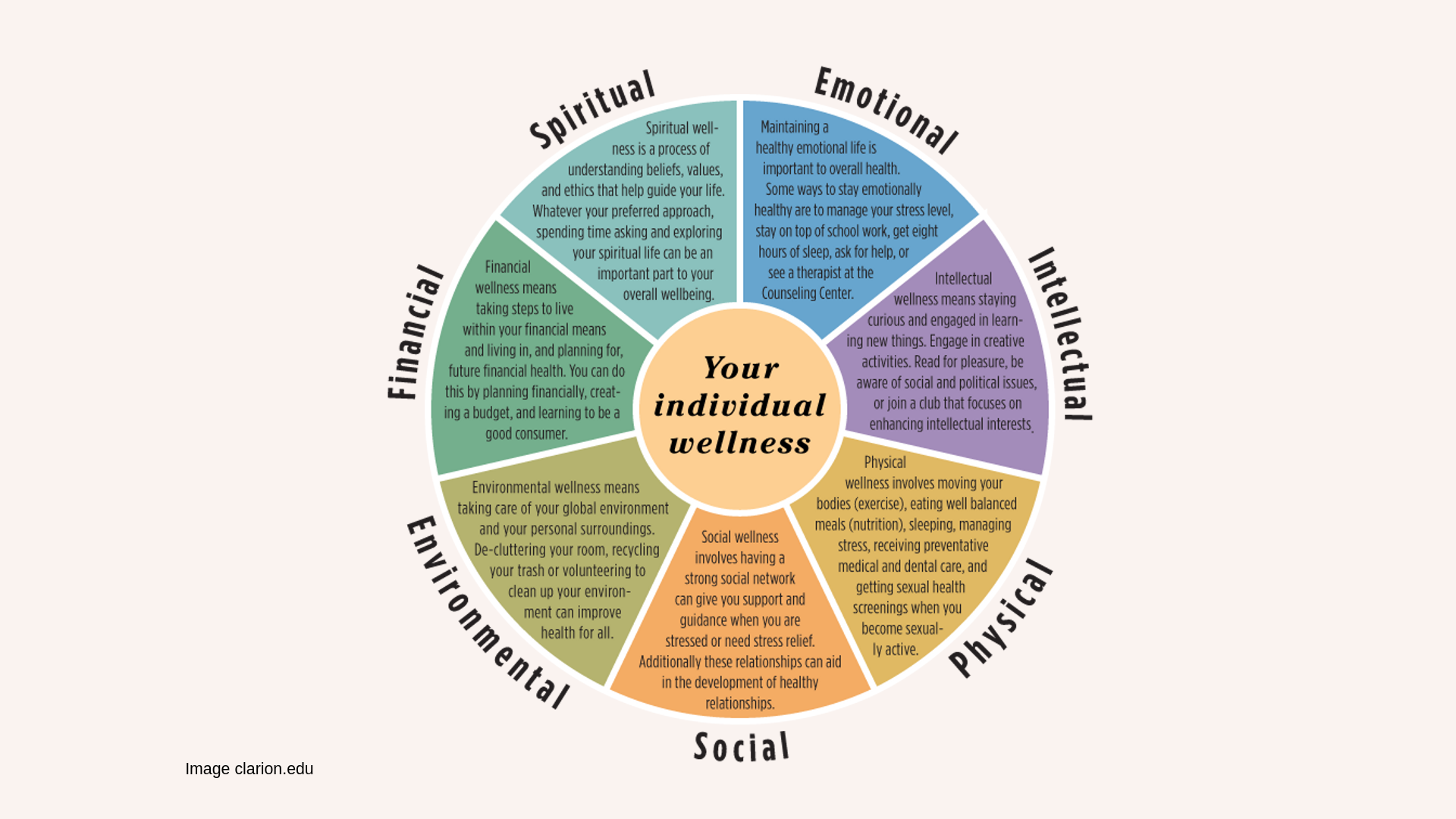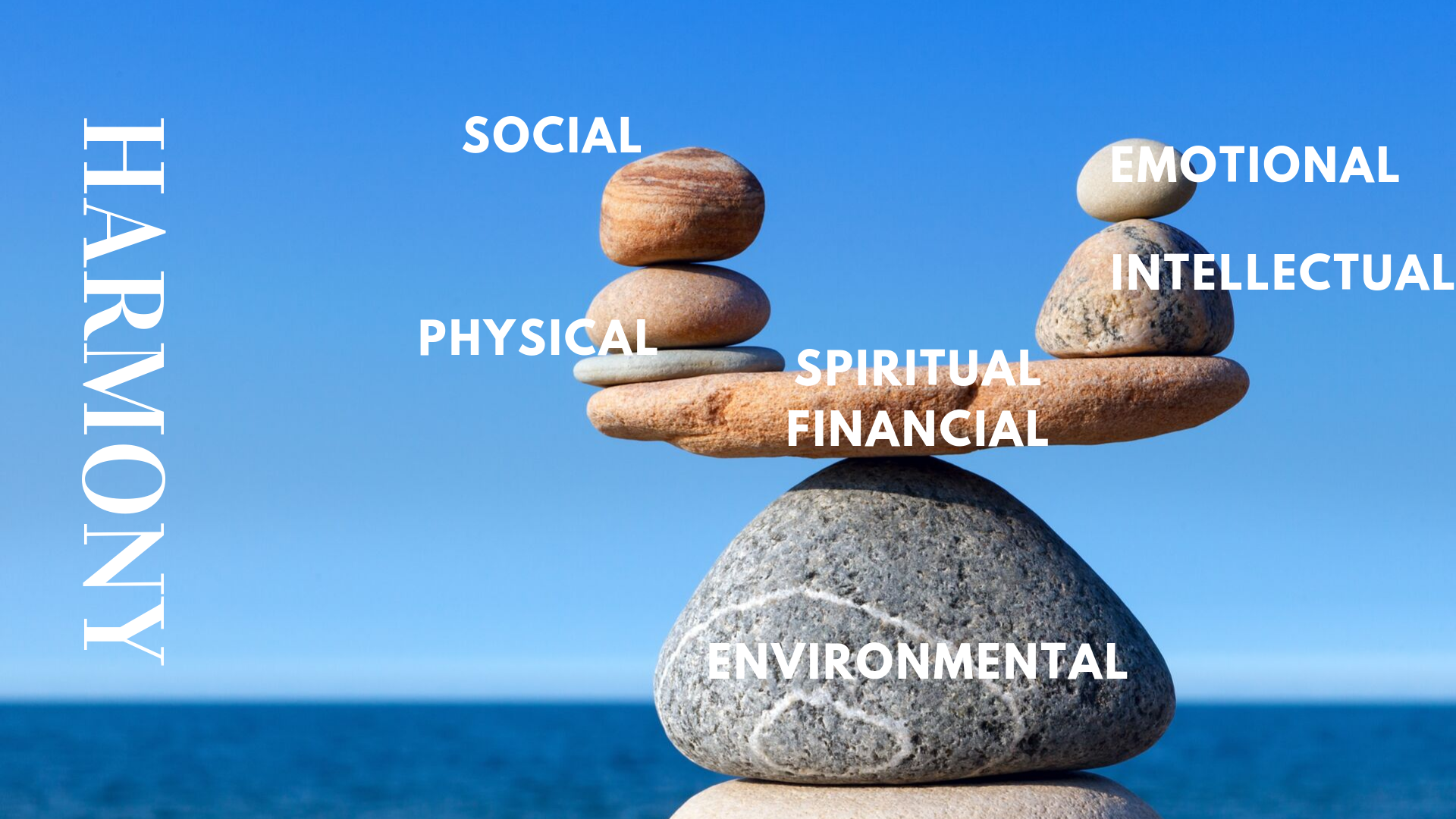
In the chaotic world we live in, taking stock of our wellbeing such be on your agenda daily. How, you ask? How do you feel emotionally? Your emotional guidance system is a clear indicator of how you really feel. According to the US National Library of Medicine (2013) “A widely available instrument called the Wellness Wheel refers to 7 types of wellness – physical, intellectual, emotional, spiritual, social, occupational, and financial – and allows individuals to reflect on current life balance and self-care.”
Our physical, emotional , spiritual, social ,occupational, financial, and environmental health all work in tandem. There must be balance, with all of the above mentioned parts of the wheel. If your occupational life, and home life are out of balance, the other parts of the wheel are in disharmony. This is where an honest introspection of your wellness wheel will come in handy through mindfulness. What is mindfulness? The definition of mindfulness is “a mental state achieved by focusing one’s awareness on the present moment, while calmly acknowledging and accepting one’s feelings, thoughts, and bodily sensations, also used as a therapeutic technique”. According to the US National Library of Medicine (2013) Mindfulness meditation involves developing purposeful attention, in the present moment, and cultivating a kind, nonjudgmental attitude towards self and others. So how do we use mindfulness to check-in with our emotional health? Our thoughts are key indicators of how we feel emotionally. If your thoughts are about doubt, fear, anxiety, or lack. Changing the thought immediately, by replacing those thoughts with affirmations, appreciation, empowering, and acceptance. Your perspective will change, and so will your emotional mood. It takes practice, but once you replace them, you are on your way to harmony.
This is where self-care comes in; not to be confused with self maintenance. Yes, life happens! There is so much in life that we cannot control. However, we should focus on how we react to the storms of circumstances that we encounter in our daily life. Self-care should become a priority. Some might call it “selfish”, I say that in order for you to be able to help others, you have to take care of yourself first. In summary good self-care is key to improved mood, reduced anxiety, anger, fatigue, and less distractibility. Improving the odds of a harmonious wellness wheel.
Here are some simple things that you can incorporate to your daily life, to help you align. 1. Salt Bath – A bath will help you slow down your thoughts, and reset. 2. Nature Walk – Absorbing the energy of nature will help you steer your thoughts to appreciation. Therefore, helping you see things from the appreciation prospective. 3. Eating healthy & often – Healthy combination of vegetables, fruits and proteins. 4- Meditation – Helps you to analyze your thoughts better, without distraction.

Article Resources
Caring for oneself to care for others: physicians and their self-care https://www.ncbi.nlm.nih.gov/pmc/articles/PMC3974630/#R49
Wellness Wheel http://www.clarion.edu/student-life/health-fitness-and-wellness/office-of-health-promotions/wellness-wheel.html
Image courtesy of www.naturalkerr.com

